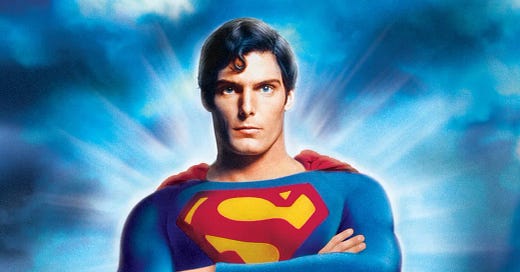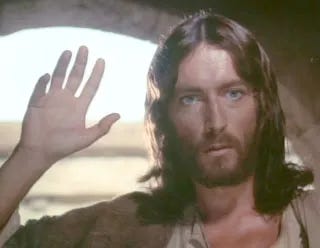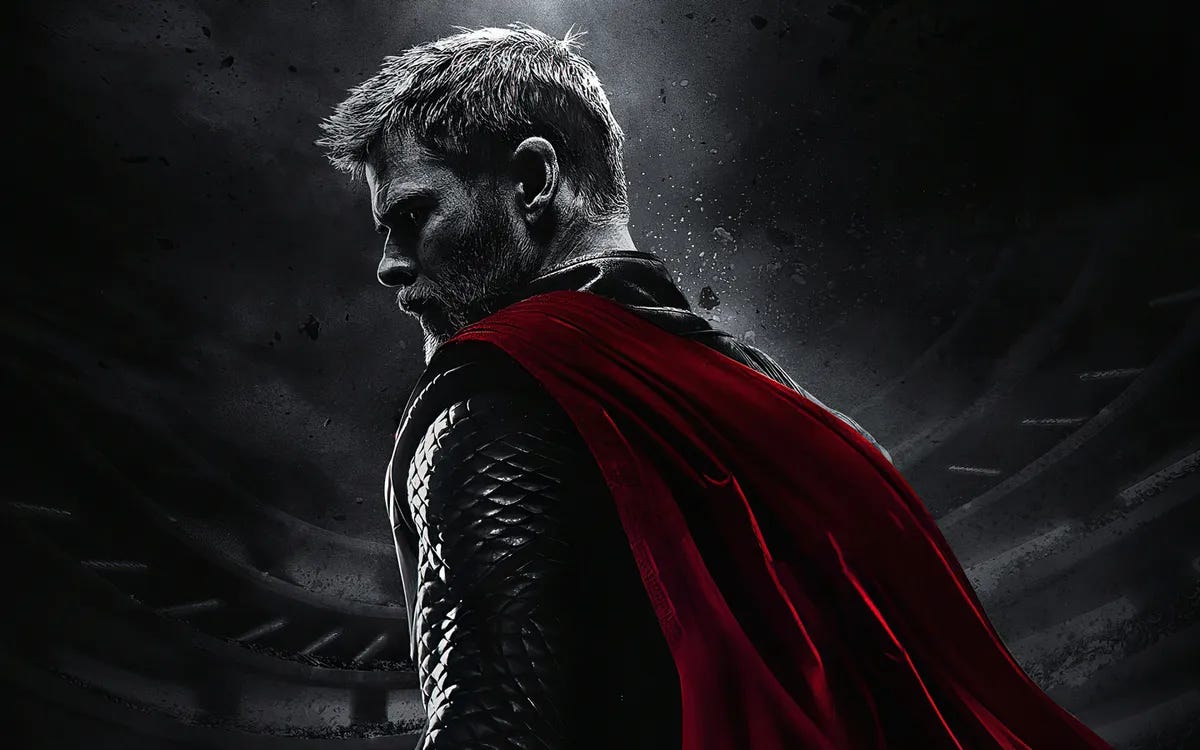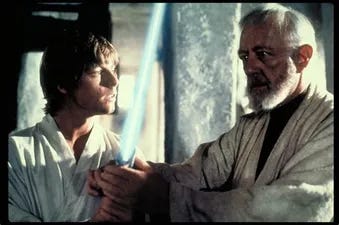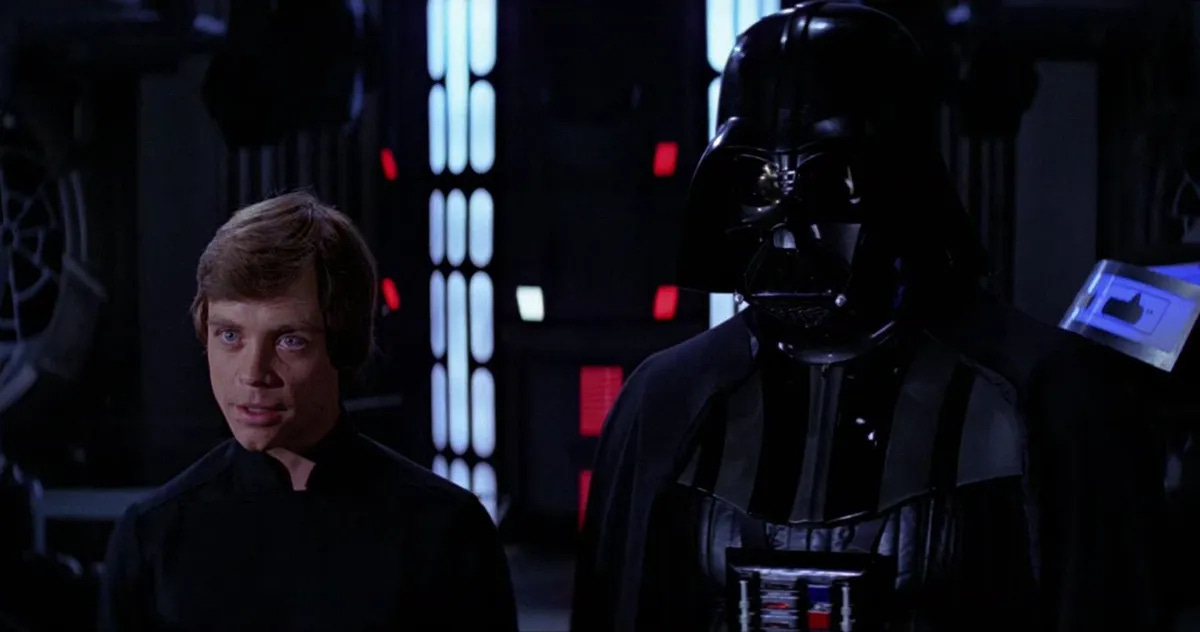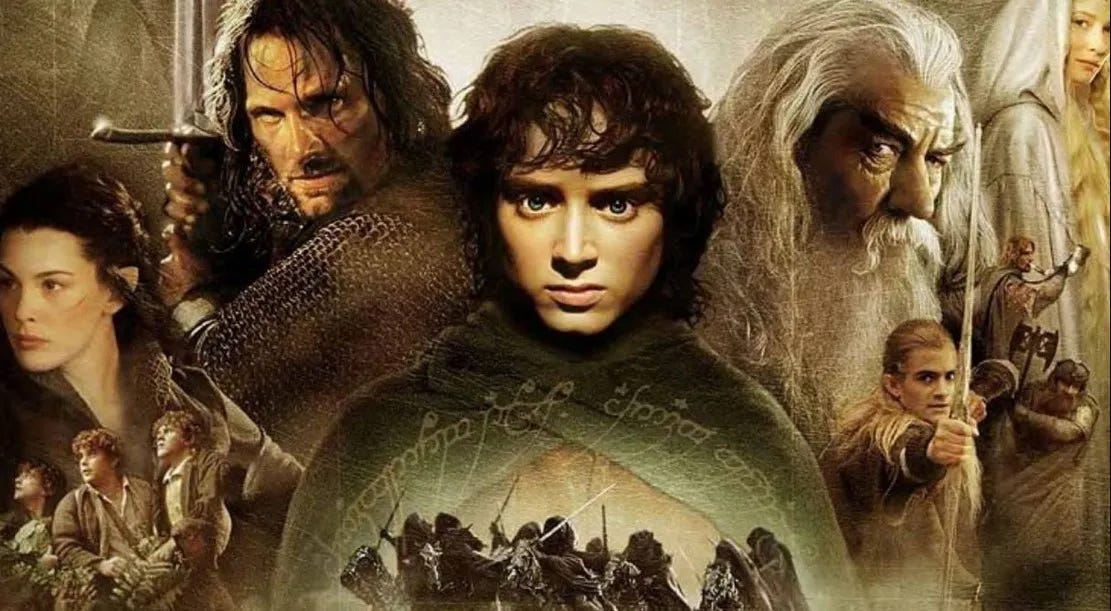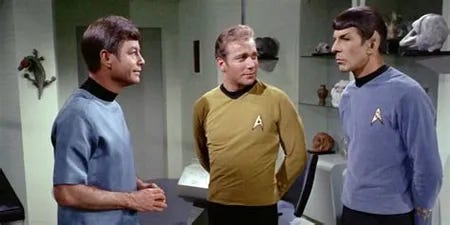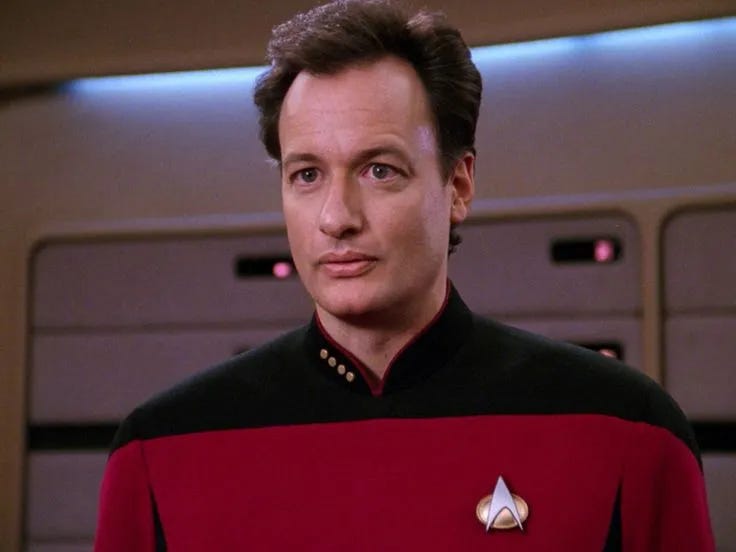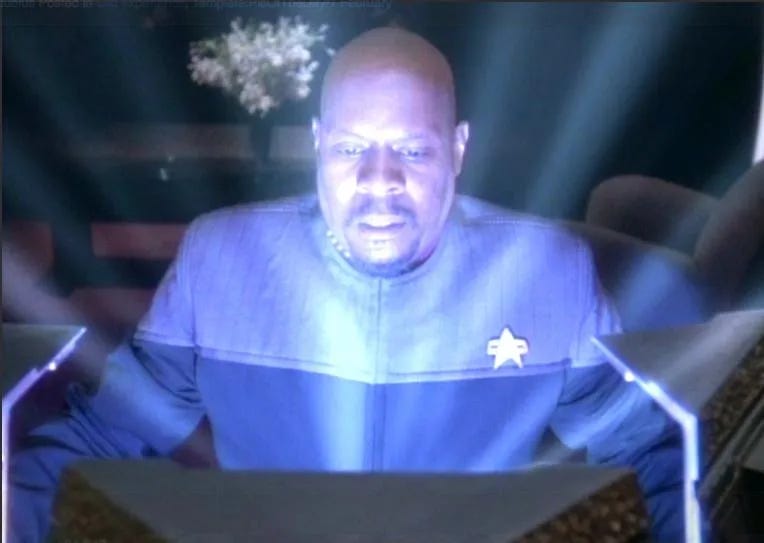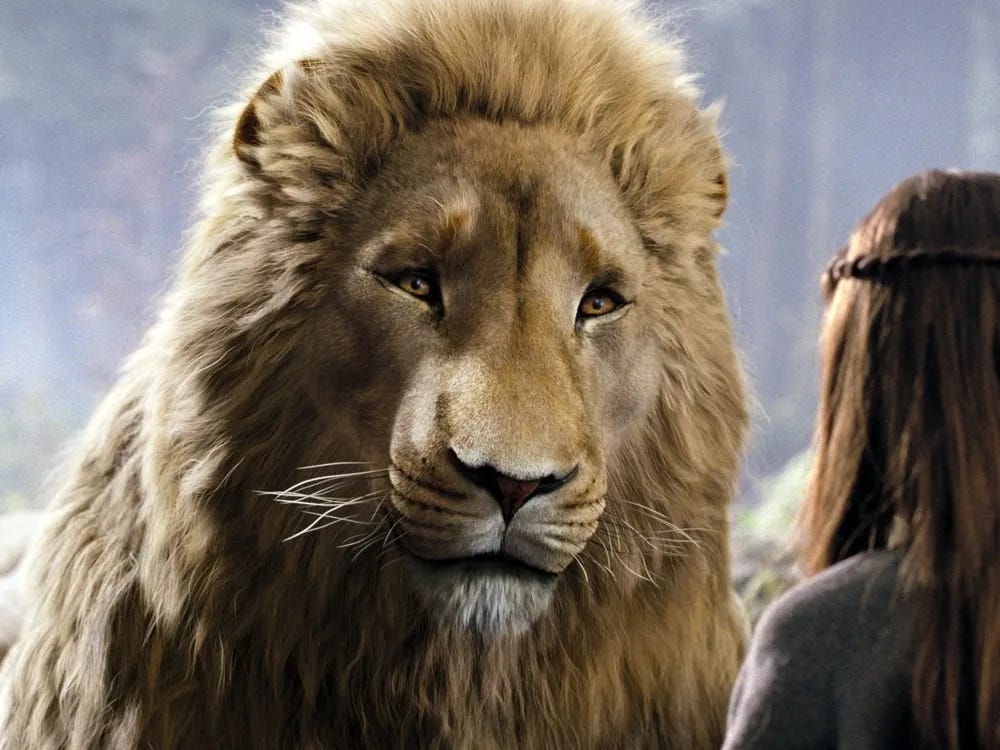Jesus Christ Is the Greatest Character of All Time
A Comparison to Popular Science Fiction and Fantasy Characters
The following is a revised and updated article published several years ago on a predecessor site to God of the Desert Books. It is Part One of Two related articles that I wrote. The second one concerns the Mother of God in the same vein, of which I will also be updating. I plan to add a third one, giving the same treatment to the Apostles. (May they forgive me!)
Imagine meeting the purported God-man, Jesus Christ, as he is understood by Christians. He’s a fully human man. His human life was the same as all other humans—he started in his human form in his mother’s womb, he was born and grew up, he ate, drank, slept, and died. At the same time, he’s fully God. He’s literally the perfect man. Like other humans, he’s tempted in all ways by sin, but unlike all other humans (with one exception), he never sins—not even considering committing the sin in his mind. Everything he does is good. Everything he says is the truth. He never ever makes a mistake. He has limitless superhuman abilities, even rising from the dead. His existence as the Son of God has no beginning or end. He is the Word of God, the author of all creation.
Imagine now yourself an author attempting to create a fictional character who is like Jesus Christ (Christ). Your task is not only to create this character, but also tell stories about his life and times on earth. He must always be good, be wise, perform superhuman acts (also called miracles), and never make a mistake. And yet, his story must not be one of hanging about in the lofty clouds aloof from us imperfect humans. He must walk among us, teaching us, healing us, feeding us, curing us, calling for our repentance, and even sacrificing himself for us. It is my contention here that this is not only an extremely difficult task to pull off—it’s nearly impossible to do, with only one close exception as discussed below. In fact, I think this is another of many proofs to the truth of the Christian claim that Jesus Christ is God.
There are many types of Christ in Western culture. Many come from the Old Testament, including significant men such as King David, Moses, and the Prophet Elijah. King David is the God-anointed and greatest King of Israel in whose line is the Messiah is to come, and author of the Psalms. Moses is the wise lawgiver who saves the Israelites from slavery in Egypt by performing great miracles such as the splitting of the Red Sea, who had to wear a veil to hide his shining face after speaking with God. Elijah is the miracle-working prophet, the voice of God, who was taken to Heaven bodily in a fiery chariot. Singular figures as these, even as amazing as they are, only represent aspects of Christ. They are mortal men given great power by God, and none of them have all of Christ’s many remarkable attributes.
Christ is the whole package: Priest, Prophet and King. Let’s review just a few features of Christ’s life that distinguish him from all other men.
Divine and Royal Lineage – He has two natures; he is fully human and fully divine—his father is God the Father, the author of all existence; his human mother is a virgin and the future Queen of Heaven. His human nature comes from the line of King David, the greatest King of Israel.
Historical Significance – His birth was foretold not only in the Bible but across the world, and the measurement of time was divided between BC and AD to mark his birth.
His Messianic Mission – As Fulton Sheen wrote, while all other men were born to live, Christ is the only one in history born to die. As the New Adam, he came to found a Church and offer himself as a sacrifice for the sins of mankind to bring us salvation from death.
Miracle-worker – While he lived as a human, he had limitless superhuman abilities and commanded great power over nature. He could read minds and predict the future. He could create food and drink at will. He could heal sick people, even raise them from the dead. He walked on water. These are naming but a few examples.
Power over Evil – The devil, the Prince of Darkness, personally tempted him in the desert to no avail. Christ did not need to fight demons. One word and they fled at his command.
Power over Death – He lived as a mortal man, offering himself as a willing sacrifice with death on the cross. Yet, as he predicted himself, he rose from the dead on the third day. Because of this, that Easter Sunday became the first new day of Creation, and the new Sabbath for Christians.
Transformed – As he beat death itself, his resurrected body demonstrated even more powers. He could walk through walls, travel about instantly, even bilocate. His resurrection marks a new creation, one that we are invited to share in.
Thus, Christ and his life is a standard in Western culture, and the Christ-figure is a well-known character type designed to draw allusions to Christ. The character, as with the biblical figures discussed above often only parallels Christ in one or two of his character traits as Priest, Prophet, and King. The Christ-figure is often portrayed as the one who sacrifices himself for the sake of others.
However, it is mostly in the Science Fiction and Fantasy genres that we see characters with superhuman abilities like Christ’s. Let’s look at five popular examples to see how they compare to Christ’s standard.
Please note that my comparisons below are not meant to put these characters and stories in a bad light; I enjoy each of them myself. I also understand completely that many of these characters were not intentionally written to match Christ. However, Christ’s influence in Western culture is an inescapable one, so comparisons to him are quite appropriate. But more specifically, my intent is to demonstrate that the standard set by Christ and his life is an incredibly high bar to meet.
In Superhero Movies
I am sure that avid comic book readers could provide a long list of superhero characters who could compare with Christ. As I was never a consistent comic book reader, most of my experience with superheroes comes from watching television and the movies, so I will focus on two featured often in the movies, Superman and Thor. Both compare greatly to Christ as being, more or less, sons of gods, and having great powers.
Superman
Superman is comparable to Christ in that he is super powerful and comes from outside the earth, but is raised as a normal human being. Although not supernatural, his parental lineage suggests an almost divine origin, being from a planet with especially powerful and advanced people. His powers on Earth vary depending on the portrayal, but they are often nearly limitless. He is good and virtuous and cares deeply about people. Superman has a physical body that is superhuman, described as being molecularly dense. In recent movies, Superman dies defending the Earth from evil, and is resurrected in the next film.
Unlike Christ, Superman’s power (at least as depicted in television and movies) is limited in that he can only do things using the physical power of his body. He cannot raise anyone from the dead or quiet a storm with a command. But even more so, recent film portrayals of Superman have brought out more dark, human characteristics. He broods a bit and doesn’t know his place in the world. With his resurrection, unlike Christ, Superman returns not through his own power, and he has no new powers and is still, presumably, prone to kryptonite, a deadly weakness.
Thor
Thor, on the other hand, is more directly divine than Superman, being based on the Norse god. In the recent movies featuring Thor, he comes from an almost supernatural world where his father is the king of the gods. He is divinely powerful with a mighty hammer as his weapon.
But unlike Christ, Thor is not all-powerful. He also has a physical body, and when stripped of his power, he can be killed. He must fight demon-like creatures to defeat them. His first trip to Earth is not voluntary—he has defied the will of his father. He’s not there to save the people, although he does so in the process. And Thor has vices, the principal one being that he’s arrogant. He is not perfectly aligned with the divine will, but then again, his father, while godlike, is not the author of all existence.
Thor’s appearances in subsequent movies have gradually reduced his stature as a godlike type of Christ. Prior to getting himself back together in the 2022 movie, he was basically reduced to a pot-bellied beach bum. In his most recent appearance, the movie was a mainly a comedy, with many jokes played at his expense.
In many ways, these characters show what havoc could occur if an even slightly flawed, imperfect being were to have superhuman qualities. Being super powerful is not enough to be like Christ.
In Star Wars
The Star Wars world is portrayed as events that happened a long time ago, in a galaxy far, far away. This alone cloaks this universe with a special set-apart, almost magical feel where out of the ordinary things are possible. It also makes the idea of meeting someone like Christ seem all the more possible. And there are a few Christ-like contenders in this universe.
The influence of Eastern mysticism characterizes the Jedi religion of this universe, which reveres “the Force.” There is no central deity with the Force—it is created by all living things and it surrounds and penetrates them all. Only the Buddhist monks of that galaxy, the Jedi, and their opposites, the Sith, have significant powers to manipulate the Force. And certainly, the Jedi Masters have some attributes of the Christ figure, particularly Obi Wan Kenobi, Yoda, and Luke Skywalker.
Jedis are good and wise in the ways of the Force. While not as divinely powerful as many superheroes, the Jedi Masters have great power to manipulate and move matter, and enhance their incredible fighting abilities. They display great virtues, such as self-sacrifice and fortitude. Obi Wan has a death and resurrection, telling his foe, Darth Vader that if he strikes him down, he will become more powerful that Vader can possibly understand. Yet with all their virtues, they can be a bit detached and disinterested in the lives of other people. For example, Qui-Gon Jinn, Obi Wan’s mentor in Episode I, remarks, “We did not come here to free slaves,” when asked about helping Anakin Skywalker and this mother. They can also be turned to evil. Yoda warns Luke to avoid underestimating the power of the “Dark Side” of the force. In the prequels, both Yoda and Obi Wan are caught blind-sided by the Sith, defeated and forced into hiding. In contrast, Christ is never defeated, even by death.
Luke saves the day by destroying the Death Star in the Episode IV, and eventually confronts and ultimately saves his father from spiritual death. His appearance in later movies sadly diminishes him as a character, let alone his status as a Christ figure. He becomes a disappointed, sad recluse who’s reluctant to help save the galaxy again. He does sacrifice himself, using his power to bilocate until he vanishes completely in both places. His sacrifice helped defeat the enemy for a time, but not the war. This is hardly comparable to a victory over death itself.
Darth Vader, aka Anakin Skywalker, is openly characterized as a messianic figure like Christ. His birth was prophesized as one who would bring balance to the Force and was born via a virgin birth. He too has vast Jedi powers. But, unlike Christ, he becomes the villain in his own story. He is tempted by and eventually succumbs to the power of the Dark Side. He does unspeakably evil things, but in the end, performs a redemptive act by saving his son from the evil Emperor and sacrificing his life in the process. Thus, while he has a good ending, Vader is unlike Christ in that he gave in to evil temptation. And badly.
In other contrasts, the Jedi’s powers are, in comparison to Christ’s, mere parlor tricks. And after death only the greatest Jedis, like Obi Wan, can become a “Force-ghost,” a spirit who can interact with the world on a limited basis. This is hardly like the afterlife promised by Christ’s resurrection.
In The Lord of the Rings
In The Lord of the Rings, author J.R.R. Tolkien takes the arguably best approach towards developing a Christ-like human character. Tolkien also is one of two in my examples who has intentionally attempted to create a Christ-type character. As Philosopher Peter Kreeft has described, Tolkien does not try to integrate aspects of Christ all into one character—he does it with three. Kreeft describes the qualities of the three characters that each represent a different aspect of Christ’s roles and qualities. Frodo represents the priestly qualities of Christ. Gandalf the Wizard represents Christ’s status as Prophet while Aragorn represents Christ as King.
Frodo, the ring bearer, takes the priestly role, making a great sacrifice in taking on the burden of carrying the ring (a symbol of great earthly, but evil power) and nearly sacrificing his very life to destroy it. Frodo is not supposed to be perfect, just another mortal man (Hobbit) who falls short at times, especially when he succumbs to the temptations of ring, even at the last minute before destroying it.
Gandalf is the most supernatural and powerful of the three and, as the Prophet has prophetic insights and, with his magic, has the superhuman powers. Gandalf “the Grey” dies while confronting evil but is resurrected as a transformed Gandalf “the White” who has even greater powers and wisdom. Yet, his transformation is not as complete as Christ’s, and his victory over an evil is not the ultimate victory over death as Christ’s was.
Aragorn represents Christ as King. He has the power to raise and lead an army of the dead. He also takes on Christ’s kingly qualities as the divine healer. He is a moral man, lordly, yet humble and supremely courageous. While he may struggle at times to make a decision, it is arguable whether he ever makes a bad decision once it is made. Aspects of Christ that Aragorn lacks are incorporated in Frodo and Gandalf; however, even as the great characters that they are, they cannot singularly or even collectively quite measure up to the true Christ.
In Star Trek
Peter Kreeft has also suggested Star Trek as an example of the Christ trio. Like The Lord of the Rings trio, Kirk is the king, Spock is the wise prophet, while Dr. McCoy is the priest. Their vast power is their ship, the Enterprise herself and her crew, and their advanced technology—phasers, tricorders, and communicators. Their great friendship and union in this Christ-like trio is a primary reason why Star Trek was such a great story.
Apart from these main characters, the Enterprise encounters many examples of men and advanced aliens with godlike powers. The first godlike character appears in the second pilot, “Where No Man Has Gone Before,” Gary Mitchell. Mitchell is an ordinary man who obtains divine powers but retains all of his human weaknesses. He begins to see himself as being too advanced for normal humanity and becomes a deadly threat to not only the Enterprise crew, but the entire human race. The story’s main theme is that imperfect humanity and godlike powers don’t mix very well.
In a first season episode, the race of Organians appear to be human-like at first, but in reality, have evolved far beyond the need for human bodies. Though initially disgusted at the idea of intervening in other races’ freedom of choice, the Organians use their divine-like power to stop an impending war between the Federation and the Klingons. The Organians actually find it painful to be around corporeal beings, a distinct difference to Christ’s deeply loving interaction with humans.
A repeat godlike character named Q appears in the later Star Trek series. Q has virtually limitless, divine-like power. He seems to have a body like a human, especially in one episode where Q loses his powers and must live like a normal human being. While Q has superhuman powers comparable to Christ, he is far from perfect. He is a trickster, a Loki-like god of mischievousness. He does at times show care and concern for humans, especially Captain Picard, but he is hardly the King of the Universe, like Christ.
Star Trek: Deep Space Nine (DS9) has the Prophets of the Wormhole, who are advanced aliens like the Organians, but in the Prophets’ case, they have trouble communicating with “linear,” material persons in a direct way, and must use visions in which they speak through characters of people the visionary knows in the real world. They do, however, take an interest in the affairs of their chosen people, the Bajorans.
Also in DS9, the character closest to Christ in all of Star Trek, I suggest, is the Prophet’s “Emissary,” Captain Sisko, the commanding officer of DS9. Sisko has several attributes of Christ—he is a a moral man, demonstrably showing many of the virtues as the series progresses, chiefly courage, faith, and charity. He eventually learns that his parentage involves the Prophets’ intercession and even attains godlike powers through them, but only at the conclusion of the series. As close as he is, he’s not perfect. He makes mistakes sometimes. He’s brooding and taciturn, due to the death of his wife. We can relate with this certainly because he is human, but he’s not Christ in this way.
In The Chronicles of Narnia
I saved the character closest to Christ for last, C.S. Lewis’s character from The Chronicles of Narnia, Aslan. Narnia is set in another, magical universe, and Aslan is the Christ for that universe. Aslan’s close comparison to Christ is intentional on the part of Lewis. Like Christ, Aslan is perfect and never makes a mistake. He is all virtue and has no vices, and is perfectly aligned with the will of his father, The Emperor Beyond the Sea, who is the God of Narnia. His power is limitless and he, like Christ, has a voluntary, sacrificial death and resurrection where he grows even more powerful.
Yet, his death, like others described in this article, is not quite the beginning of a new creation like Christ’s. That aside, Aslan is the most like Christ of any character reviewed here. The main difference of course is that he is a lion, not a man.
Conclusion
Humanity has grappled with the possibility of the perfect man for thousands of years. Ancient Western philosophy called such a man the “Logos” or “Universal Wise Man.” The English Common Law system, on a more practical level, refers to the “reasonable, prudent man,” who is applied as the measure to determine if a particular defendant’s actions compare. Would the reasonable, prudent man have driven the car with bald tires? Not even a possibility.
Has the Logos lived with us humans or is he really just some fancy, other-worldly personification of a philosophical concept? Well, one of Christianity’s principal claims is that the Word of God (Greek logos) did live among us. The Gospel of John directly identifies Jesus of Nazareth as the Logos: “In the beginning was the Word, and the Word was with God, and the Word was God.” (John 1:1). Certainly, the world’s other great religions have their share of prophets, kings, and wise men, such as Mohammed, Buddha, or Moses, but none of them ever claimed to be the Logos themselves. Christ’s claim was that he and God the Father were one and that he, himself was the path to salvation. “I am the way and the truth and the life. No one comes to the Father except through me,” he said. (John 14:6). At the risk of over-emphasizing this, Christianity’s claim is not that Christ was another great man, teacher, prophet, and king; he is the High Priest, Prophet, and King of the Universe.
As mortal, imperfect people, we have a hard time trying to conceive of perfection, much less creating a character who is the measure for perfection itself. Characters developed and written by mortal human beings can only be made to imperfectly emulate Christ’s example. Simply put, if you are imperfect, it’s impossible to describe perfection. And yet, the four Gospel writers of the New Testament seem to have done this very thing. But, then again, the Christian claim is that they didn’t create or describe the perfect character themselves. With a little help from divine inspiration, they described the life and teachings of the perfect man based on the eyewitness testimony of his apostles and disciples.
However, even if you only believed that the Gospel writers wrote about an invented character of Christ, you would have to admit that they wrote about the most singular character in all of history. As to science fiction and fantasy characters, Christ beats all of them using their own standards. His perfection and power are beyond any science fiction or fantasy character seen in movies and television. His mission was quite beyond saving people from earthly perils; he came to save our immortal lives and make us all one with perfection. Even better, he has a two-thousand-year-old “Justice League” that we can join. We can go there to receive his bread from Heaven, where we will have life within us and be saved from eternal death. I can’t think of another character real or fantasy that offers so much.
Admittedly, he did not have a fancy uniform or costume. “And he was transfigured before them; his face shone like the sun and his clothes became white as light (Matthew 17:2).” He really didn’t need one.


